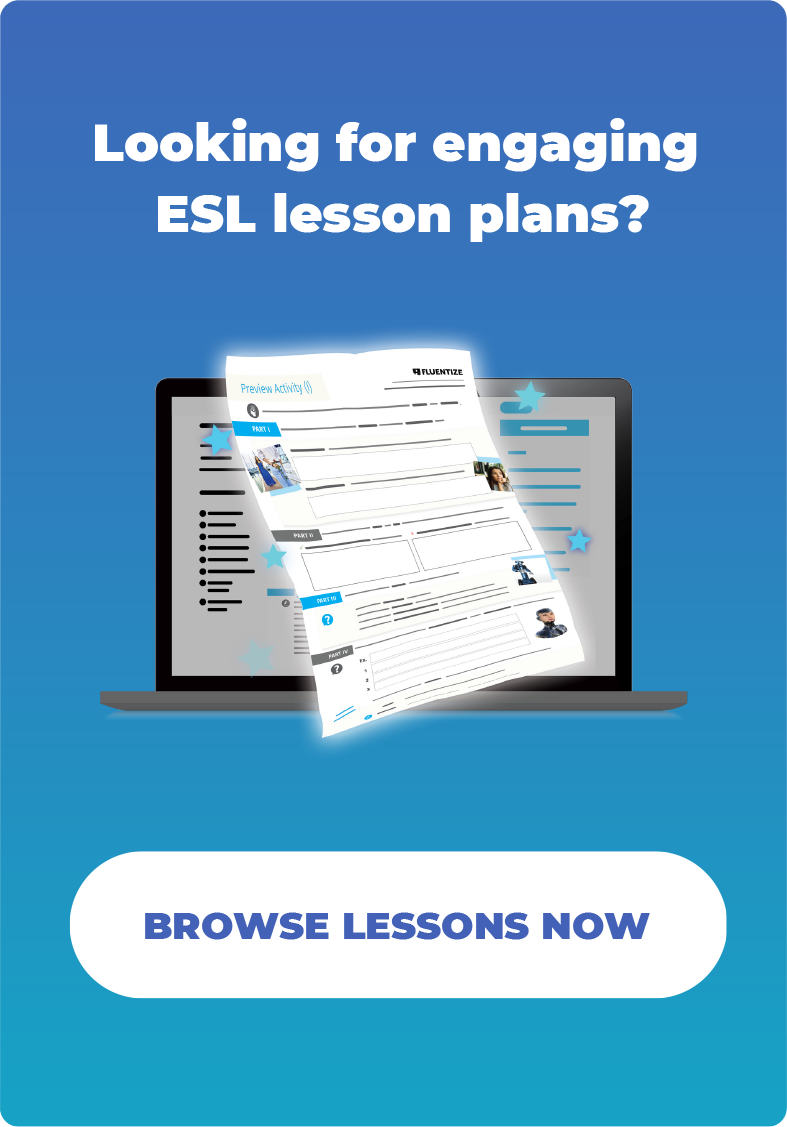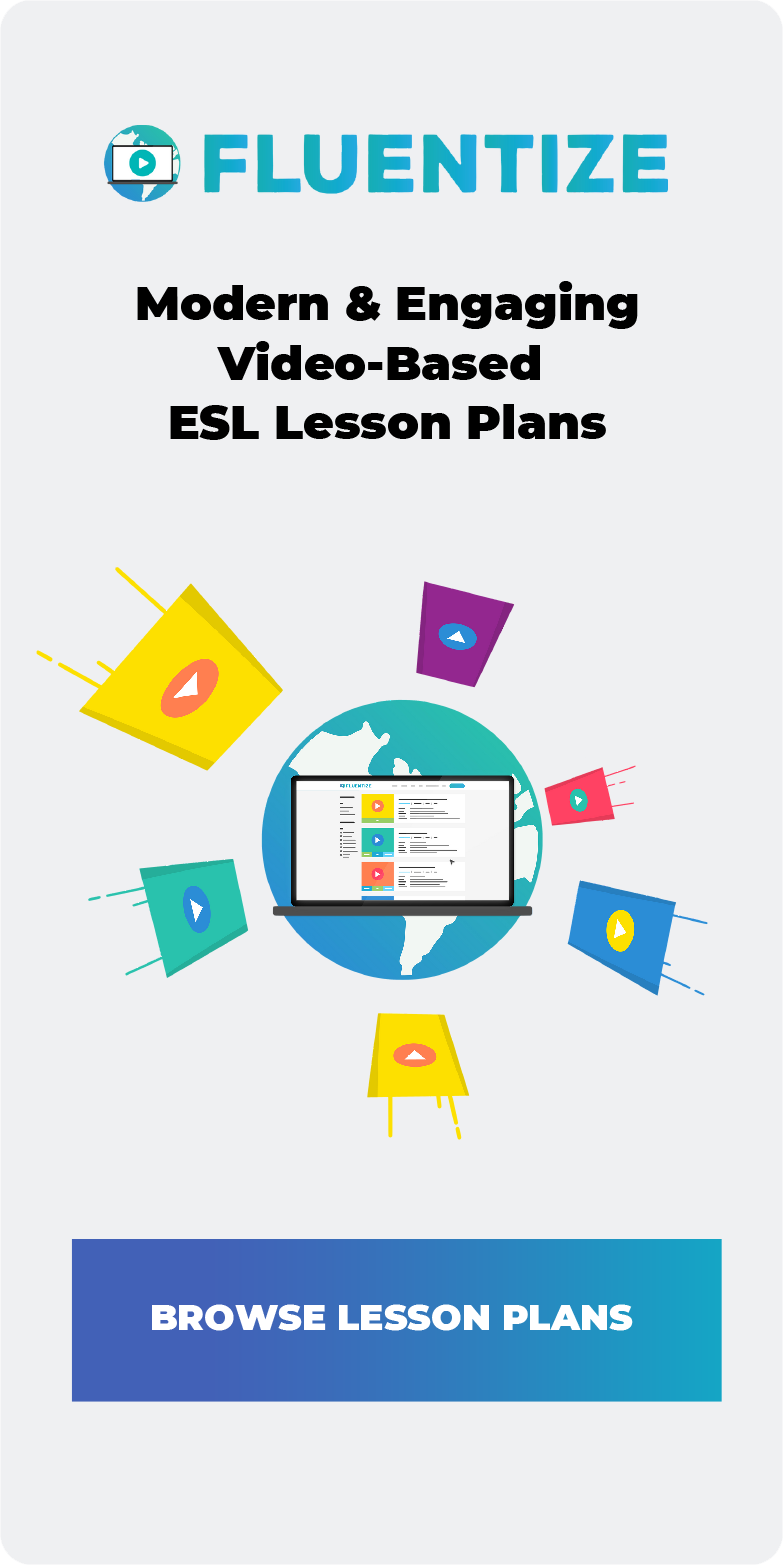I have to admit that using controversial ESL topics (in this post, also referred to as “PARSNIPs” topics) have always piqued my interest.
PARSNIPs (which stands for Politics, Alcohol, Religion, Sex, Narcotics, -Isms, and Pork) generally refer to controversial topics. These are topics that mainstream coursebooks often don’t include. Many teachers may also avoid them for various reasons. Both teachers and students may fear getting into heated discussions and arguments that create divisions.
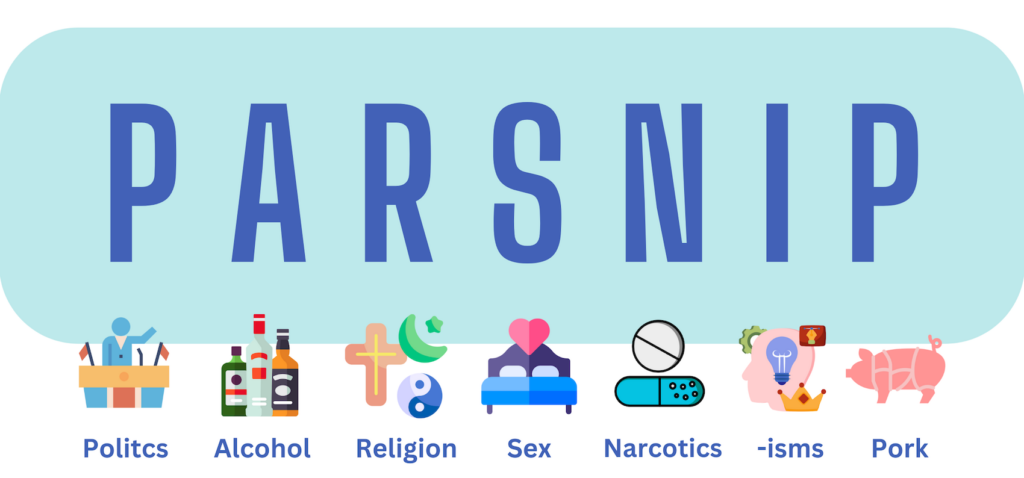
However, incorporating these topics into language teaching can be an effective way to help students cultivate critical thinking skills. Just as importantly, discussions on controversial ESL topics can also enhance their cultural awareness and language skills.
During my 23 years of teaching, I’ve had several opportunities to cover these controversial ESL topics in my lessons. I remember one day last year, my advanced-level students engaged in a heated discussion about a news article. It was about a controversial political decision taking place in Brazil in 2022. (Who can guess what the topic was?) Although it was controversial, I felt it was an important topic to discuss in class.
In this post, I will explore the importance of using controversial ESL topics in your lessons and how to appropriately select them. I’ll also provide a checklist for evaluating their effectiveness.
Why should we bother with controversial ESL topics?
The experience with my advanced students inspired me to explore the idea of incorporating controversial ESL topics more into my teaching.
I’ve found that these topics allow students to have meaningful conversations. In order to actively engage students, it can be useful to introduce them to these controversial ESL topics or PARSNIPs topics. They provide relevance and ensure learning in a safe and comfortable environment. This allows students to express their thoughts on various topics while also addressing stereotypes or preconceived ideas. As a result, we can actively promote understanding and respect across multiple cultures.
Encouraging discussions about unique traditions, customs, and beliefs allows students to gain a deeper insight into various cultures. It can also broaden their horizons beyond their individual experiences.
When it comes to politics, students can gain valuable insights by discussing current affairs or examining the role of governments in society. This is one of the most controversial ESL topics due to the individual opinions students may have. Therefore, you must approach these discussions sensitively, respectfully, and carefully.

On the other hand, preparing lessons focused on environmental topics such as climate change, pollution, and sustainability are relevant global concerns that get students interested. These topics heighten students’ awareness of critical challenges facing our planet. While they’re interesting topics to cover, you may find some of them to be controversial or that students tend to express strong opinions about them.
Furthermore, exploring human rights issues enables students to express opinions on important concepts, like fairness and justice. Teachers can assess the effectiveness of PARSNIPs topics by checking their appropriateness and relevance. It is essential to consider whether the topic is appropriate for students’ cultural backgrounds and ages, while also preserving their beliefs and values. Moreover, teachers must ensure that the topic is relevant to students’ interests, experiences, and motivations for active participation.
Choosing a topic for language learning and critical thinking requires a clear purpose. Also, you should try to present the topic with sensitivity to avoid stereotypes or generalizations. You should also try to adapt the language or discussion topics to match students’ proficiency levels.
Teachers should carefully plan these discussions and offer guidance to help students progress in their language skills. PARSNIPs topics can also help challenge incorrect cultural beliefs and stereotypes.
Overall, discussing PARNIPS themes helps improve critical thinking and cross-cultural understanding. These discussions provide a unique opportunity for students to learn vocabulary, grammar, and idiomatic expressions not typically covered in traditional language classes.
Other benefits of covering PARSNIPs topics in class
In a nutshell, here are some of the benefits of engaging in controversial discussions in the ESL classroom, including PARSNIPs topics:
- They encourage critical thinking skills development
- They enhance language skills and proficiency
- They foster cultural awareness and sensitivity
- They promote understanding and respect across multiple cultures
- They provide relevance and ensure learning in a safe and comfortable environment
- They allow students to express their thoughts and dispel stereotypes or preconceived ideas
- They stimulate interest and raise awareness of global concerns
- They enable comprehension of societal concerns and human rights issues
- They offer opportunities for emergent language learning opportunities
- They encourage open-mindedness, tolerance, and social consciousness
“I’m just an English teacher, it’s not my responsibility to teach controversial ESL topics or PARSNIPs.”
In my opinion, the argument, “It’s not my job to teach controversial ESL topics; I am just an English teacher”, is a problematic viewpoint. It shows a limited understanding of the role of language teaching in developing critical thinking, cultural awareness, and social consciousness.
As English teachers, I firmly believe we have a responsibility beyond just teaching grammar and vocabulary. Neglecting controversial topics like politics, religion, sex, and narcotics can deprive our students of important knowledge to become well-informed and socially responsible. It can also foster a culture of conformity that impedes critical thinking and encourages blind acceptance of established norms. We don’t want that, right?
That reminds me of a remarkable quote :
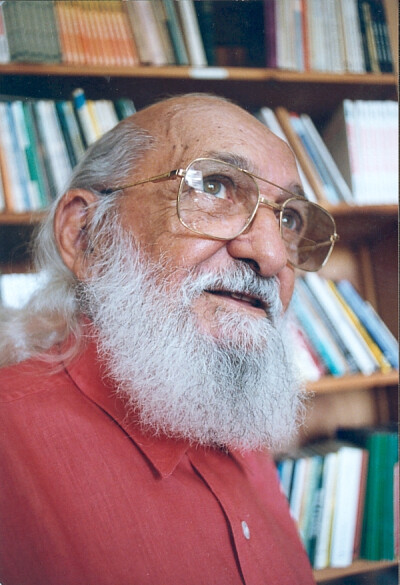
“There’s no such thing as neutral education. Education either functions as an instrument to bring about conformity or freedom.”
– Paulo Freire
In “Pedagogy of the Oppressed”, Friere stresses the importance of transformative and liberating education that empowers learners to question and challenge the dominant social structure.
Hence, by integrating PARSNIPs topics into our teaching practice, we create a transformative and engaging environment for our students to engage in open discussions on sensitive issues affecting our society. This approach enhances their confidence levels and opens up conversation on key concepts like gender identity and racial profiling, to give a few examples.
During these discussions, students can challenge biases about these topics and understand different cultural perspectives better. In other words, it can help create empathy towards others. This helps make societies more inclusive worldwide. Therefore, I believe teachers who avoid controversial topics miss the chance to see education’s power to bring about positive change.
As we integrate PARSNIPs topics into our teaching, we create an environment that encourages critical thinking, understanding different cultures, and ethical awareness. Our role as English teachers is not just to teach language but also to foster critical thinking, social awareness, and cultural sensitivity. Avoiding PARSNIPs topics limits our students’ growth and prevents them from becoming informed, responsible citizens. Ultimately, including PARSNIPs topics helps prepare students for our changing world, where openness, tolerance, and respect are valued traits.
Checklist for integrating controversial ESL topics into your lessons
To ensure the effective and sensitive use of controversial ESL topics or PARSNIPs in the language classroom, teachers can use the following questions when planning lessons:
- Is the topic relevant to my students’ cultural backgrounds and ages?
- Does the topic preserve students’ beliefs and values?
- Is the topic appropriate for the students’ proficiency level?
- Is the topic relatable and interesting to students?
- Can the topic be adapted to accommodate diverse learning styles and proficiency levels?
- Does the topic offer opportunities for emergent language, such as new grammatical structures, idioms, and vocabulary?
- Does the topic encourage students to express their opinions freely?
- Does the presentation of the topic handle stereotypes or generalisations with sensitivity and respect?
- Does the topic offer opportunities for critical thinking and cultural understanding?
- Can I provide feedback and guidance to enhance learners’ language production and critical thinking skills?
- How can I ensure that the topic is culturally sensitive and respectful to all students in my classroom?
- How can I encourage all students to participate in the discussion, even if they have different viewpoints or beliefs on the topic?
- How can I create a safe and supportive environment for students to share their thoughts and opinions on that very topic?
- How can I adapt the language and content of the PARNIPS topic to be appropriate for different proficiency levels and ages of students?
Approaches to managing controversial discussions
Finally, be prepared to handle difficult or controversial situations that may arise during sensitive discussions. Be aware of potential triggers for students and be prepared to provide support and resources if necessary. Additionally, teachers can model effective conflict resolution and help students learn to express their opinions in a respectful and constructive manner.
If you’ve chosen to tackle PARSNIPs topics in class, you might wonder, “How do I manage the discussion? What if students disagree and get into a heated argument?” While it’s important to encourage open dialogue, creating a safe, respectful space is vital. Here are some ways teachers can handle sensitive discussions in class:
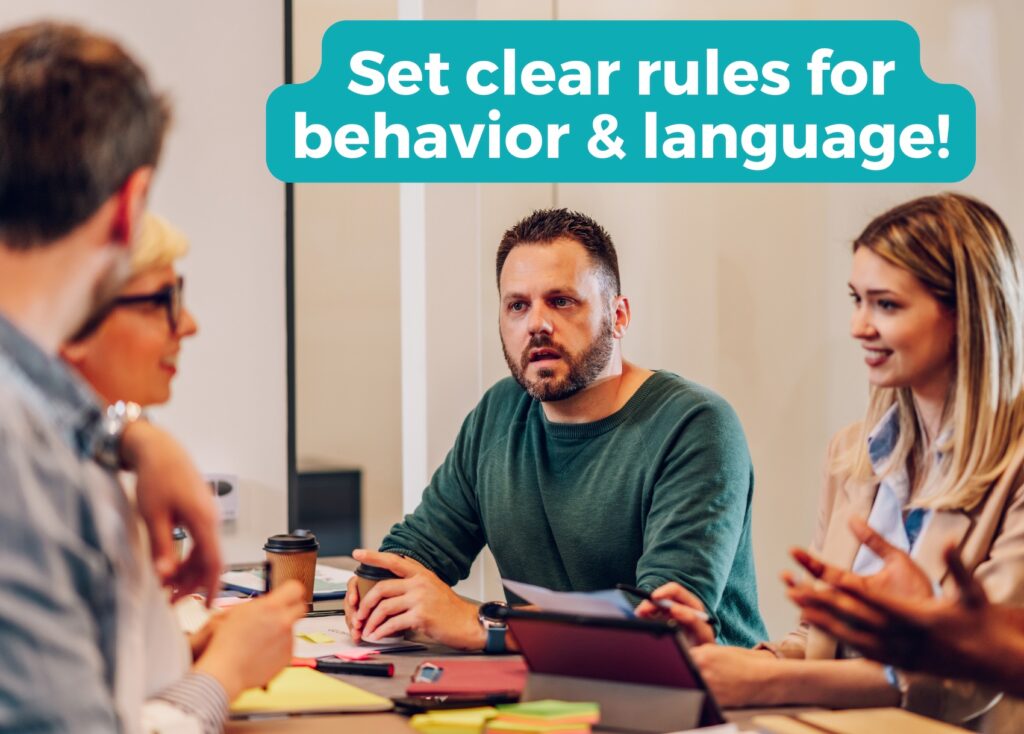
First, set clear rules for behavior and language. Establish expectations for respectful communication before discussing any sensitive topics. Consider brainstorming ground rules like listening without interrupting and raising hands to speak. We want students to show respect for each other even if they don’t agree with others in class. Encourage active listening, empathy, and openness.
In addition, try to make sure every student’s voice is heard and valued. Try to encourage participation, but respect those who are hesitant to speak. Provide opportunities for all students to share thoughts, whether through small groups or reflective writing. This can give students space and comfort to open up.
Finally, be ready to manage challenging situations or discussion that may arise. Do your best to be mindful of potential triggers and offer support if needed. Additionally, teachers can model effective conflict resolution and help students learn to express their opinions in a respectful and constructive manner.
One more tip for navigating controversial ESL topics in the classroom is to make sure your prepared materials or discussions don’t get too personal. In other words, prepare your material with sensitivity.
Let’s take LGBTQ+ as an example topic. This is a topic that sometimes leads to controversial discussion and even arguments.
Take a look at the discussion questions below. Which three do you think are the most likely to be controversial and lead to arguments?

- What positive changes have you observed in society’s attitudes towards LGBTQ+ individuals in recent years?
- What kinds of social challenges might people in the LGBTQ+ of people face?
- Should LGBTQ+ representation be increased in children’s media, or does it introduce complex topics too early?
- Should transgender athletes be allowed to compete in sports according to their gender identity, or should there be separate categories based on biological sex?
- What can workplaces do to create a more inclusive environment for LGBTQ+ employees?
- Why is it important for people to be accepting and tolerant of others’ sexual orientation?
- Is it appropriate for parents to influence their children’s gender identity or sexual orientation, or should they let them discover it on their own?
- The month of June is LGBTQ+ Pride Month. Why do you think ‘Pride Month’ is celebrated? How do you think LGBTQ+ communities celebrate this month?
If you answered number: 3, 4, and 7, then we’re on the same brainwave. These questions are more likely to lead to arguments than the others because they challenge deeply ingrained societal norms and beliefs. This makes them vulnerable to debate and disagreement. Participants may bring personal experiences, cultural backgrounds, and moral convictions to the discussion, which may fuel potential arguments. So depending on your students and circumstances, it may be advisable to stay away from these.
Questions 1, 2, 5, 6, and 8, on the other hand, may be safer because they’re much less sensitive and more general. That doesn’t mean you can’t proceed to discuss the more sensitive questions in class. In the end, you know your students best. Consider their backgrounds, age, the political climate of the country, and attitudes. It’s likely you have students that hold stronger beliefs or opinions on certain topics than others. Use your best judgement and approach lesson planning on these topics consciously.
All of these approaches should steer your class in the right direction when it comes to discussing controversial ESL topics. If you’re just looking for some general ideas on debate topics, you can either prepare your own, research some online, or plan a full lesson around one of them.
Planning your lessons
- Start with the learning objectives: Identify the specific language skills you want your students to develop. Determine how the controversial topic relates to the learning objectives and plan activities to enable students to meet these objectives.
- Use credible sources: Ensure you use credible sources when preparing your PARSNIPs materials. The information you provide should be accurate, factual and up-to-date. Use sources such as news outlets, academic papers or government reports.
- Provide a safe learning environment: Encourage respectful discussion and create a safe environment where students can express their opinions freely without fear of judgement. This can be done by setting clear guidelines for discussion and ensuring that all students have a chance to speak.
- Use ready-made and your own materials. There are a variety of pre-made PARSNIPs lesson plans available online. Check out Fluentize’s lessons. These can be great resources for teachers looking to incorporate controversial topics into their lessons but are short on time or resources. If you have more time to plan, it would be nice to incorporate various materials into your lesson plans, such as articles, videos, podcasts, and infographics. They can help keep the lesson interesting and engaging.
Fluentize ‘PARSNIPs’ lessons on controversial ESL topics
If you’re looking for some lesson plans featuring PARSNIPs themes and controversial ESL topics, here are the selections we recommend from our library.
Politics
Donald Trump Indicted For Record Third Time (C1)
Covering politics in ESL classes encourages student engagement with current events. It helps them grasp political systems, ideologies, and global issues.

This lesson begins with students assessing a quote from a news anchor and engaging in discussions about Trump’s indictments. They then do some vocabulary activities related to the indictment and the 2021 insurrection at the US Capitol. The lesson also features a video on a news report about Trump’s third indictment, and students complete listening comprehension activities, and discuss the content.
The lesson aims to promote student engagement and critical thinking about current political and legal issues while helping them learn and use of complex legal vocabulary.
At the end of the lesson, students explore the controversial American political figure, Donald Trump, as well as some political debates at the end. Some of these debates include:
- Should a person who is indicted for a crime be able to run for president or serve as president? What about if the person is actually convicted of a crime?
- Should it be possible for an election to be overturned after the results are publicly announced, or should they be permanent after being announced?
- Should individuals convicted of participating in an insurrection, such as the one at the US Capitol, be disenfranchised (lose their right to vote)?
- Should political media outlets and journalism always try to be unbiased in their reports, or do you think it’s important to be biased in some cases?
Politics: Other Discussion Topics
- Immigration policies
- Gun control
- Voting rights
- Foreign relations
- Climate change policies
- Healthcare policies
- Police brutality
- Tax policies
- Social security reform
- Racial and gender equality
Alcohol
The Rise Of Alcohol-Free Bars (B1 – B2)

Discussing alcohol in ESL settings raises awareness about its cultural significance, health effects, and social norms. It assists students in navigating social situations involving alcohol, while enhancing their language skills for expressing opinions and making informed choices.
This lesson plan is designed for intermediate B1 to B2 level students and focuses on describing trends, particularly in the context of alcohol consumption. The lesson begins with a discussion on different types of drinks and questions related to alcohol, such as:
- What role does alcohol play in your culture?
- What are the negative effects of drinking alcohol?
- Why do some people choose to go alcohol free?
As you can see in these discussion questions, we don’t want the questions to get too personal, which is why we avoid questions such as, “How much alcohol do you drink?”, even though it’d fit well into the theme of the lesson.
Furthermore in the lesson, students then categorize phrases describing drinking effects and behaviors and make predictions about drinking trends.
After watching a video about sobriety and the rise of no-alcohol trends in the USA, students engage in listening comprehension activities and discuss their opinions on the topic. The lesson concludes with a communicative activity where students research trends in an industry of their choice and present their findings to the class, utilizing the trend-related vocabulary and concepts learned earlier in the lesson.
Alcohol: Other Discussion Topics
- Alcohol addiction
- Underage drinking
- Drunk driving
- Alcohol marketing to young people
- Minimum legal drinking age
- Alcohol and domestic violence
- Effects of alcohol on the body
- Alcohol-related liver diseases
- Social and cultural acceptance of alcohol
- Alcohol and sexual assault
Religion

Exploring religion in ESL classrooms promotes understanding of diverse beliefs, values, and cultural practices. It encourages tolerance, respect, and empathy towards individuals of different faiths, facilitating intercultural communication and harmony.
In this engaging ESL lesson plan suitable for both adults and teens, students explore the fascinating world of Ramadan through an informative video presentation.
The video provides a comprehensive overview of Ramadan, covering its story, traditions, practices, and joyful celebrations. Throughout the lesson, students are encouraged to participate in lively discussions exploring the significance of Ramadan, religious practices, and observances.
Following the video, students engage in various listening and viewing comprehension activities designed to deepen their understanding of the content. They then embark on a reflective journey, discussing topics such as religious diversity, the concept of fasting, and the importance of tolerance.
The lesson also includes a thoughtfully crafted ‘Religious Observance Task’, providing students with opportunities for personal reflection and cultural appreciation. In this task, students choose a religious observance to research and present their findings using a mind map. This includes:
- Calendar (dates/time of year)
- Origin story
- Holy book or text people read
- Who it’s observed by
- Generous acts
- Fasting practices/rules
- Celebrations/ Festivals
- Special meals/foods/ feasts
Religion: Other Discussion Topics
- Religious freedom
- Separation of church and state
- Religious extremism
- Interfaith relationships
- Religious dress codes
- Religion and politics
- Atheism
- Conversion therapy
- Religious discrimination
- Religious symbols in public spaces
Sex
LGBTQ: Pride Month History (B2 – C1)

While Fluentize doesn’t offer any topics specifically on sex, the closest lesson we do offer is on gender and LGBTQ communities.
In this inclusive lesson plan, students watch with a short video and do a listening exercise on “Pride Month” – an empowering period dedicated to advocating for equal rights within the LGBTQ community. The lesson offers a range of activities, including thought-provoking discussions, conversational exchanges, and vocabulary exercises focused on LGBTQ communities, Pride Month, activism, and human rights. Some of the discussions cover the questions explored earlier in this post.
Furthermore, students expand their vocabulary by learning key terms highlighted in the video.
Sex: Other Discussion Topics
- Gender identity
- Sexual orientation
- Sex education in schools
- Abstinence-only education
- Contraception access and availability
- Sexual harassment in the workplace
- Sexual consent
- Sexualization of women’s bodies
- Sex work
- Pornography and its impact on society
Narcotics
Could LSD And Shrooms Help Treat Depression? (C1)
Covering narcotics in ESL instruction raises awareness about drug use, addiction, and the impact of substance abuse on individuals and communities. It equips students with language skills to discuss prevention, treatment, and societal responses to drug-related issues.
While we don’t have any topics specifically on narcotics, the closest we do offer is a lesson on psychedelics.

In this engaging lesson plan tailored for both adults, students watch a captivating documentary video discussing psychedelics such as LSD and mushrooms in relation to mental health. The lesson materials offer discussions and conversational exercises on the topics of psychedelics. Moreover, students expand their vocabulary by learning key terms and phrases highlighted in the video.
Following the video, the lesson transitions into a post-viewing section featuring follow-up discussions, sentence rewriting tasks, contextual vocabulary usage, and stimulating imagery.
Lastly, students engage in role-play activities, further enhancing their comprehension and language skills. A bonus grammar section focusing on the past perfect continuous tense add more value to the lesson.
Here are some of the discussion topics covered in the lesson:
- What are the effects of taking psychedelics (shrooms, acid, etc.)?
- What are some different reasons someone might take psychedelics?
- OPTIONAL: Have you ever taken psychedelics? If so, describe your trip (experience). If you’ve never taken psychedelics, would you ever try them? Why or why not?
That third question above brings me to another tip: you can also give students the option of deciding whether they want to discuss a topic or question. For some students, it may be too personal, whereas others may feel comfortable opening up about a topic like this.
Narcotics: Other Discussion Topics
- Marijuana legalization
- Drug decriminalization
- Drug cartels
- Drug-related violence
- Prescription drug abuse
- Substance abuse treatment
- Performance-enhancing drugs in sports
- Drug testing policies
- War on drugs
-Isms
What Is International Women’s Day? (B2 – C1)

In ‘PARSNIPs’, “isms” typically refers to a variety of sensitive or controversial issues. These often include racism, sexism, ageism, ableism, or other forms of discrimination or prejudice. Specific example topics might include discussions about systemic racism, gender inequality, age discrimination in the workplace, or accessibility issues for people with disabilities. These topics require careful handling to ensure respectful and productive discussions in the ESL classroom.
The lesson that we’d like to point you to for this one is on International Women’s Day. It is tailored for B2 intermediate and C1 advanced students, aiming to raise awareness for important women, gender equality, and women’s achievements.
The lesson incorporates activities, video viewing, and discussions on women’s history and stereotypes. It encourages critical thinking, expands vocabulary, and promotes awareness of global gender issues. Designed for March 8th, it offers engaging content to enhance English skills while delving into significant social topics.
-isms: Other Discussion Topics
- Racism
- Sexism
- Ageism
- Ableism
- Homophobia
- Transphobia
- Classism
- Xenophobia
- Islamophobia
- Anti-Semitism
Pork
What If Everyone In The World Went Vegan? (B2)

Exploring pork-related topics in ESL lessons provides insights into cultural dietary practices and environmental considerations.
In this enriching ESL lesson plan tailored for both adults and teens, students explore the topic of veganism through an informative report illustrating the potential global impacts of adopting a vegan lifestyle. The lesson encourages lively discussions surrounding topics such as veganism, vegetarianism, meat consumption, and their ecological footprint.
Throughout the session, students have the opportunity to expand their vocabulary by familiarizing themselves with key terms and phrases introduced in the video. Following the viewing, students engage in activities focusing on compound words, phrasal verbs, and further vocabulary enhancement exercises. Additionally, supplementary speaking tasks are provided to encourage active participation and fluency development.
QUESTIONS IF YOU EAT MEAT:
- For what reasons do people turn vegan or vegetarian?
- Have you ever considered going vegan or vegetarian? Why or why not?
- What do you think would be the pros / cons of eating a vegan diet?
QUESTIONS IF YOU DON’T EAT MEAT
- Why have you chosen to be vegan / vegetarian?
- How difficult has it been for you to avoid eating meat?
- What kind of impact has veganism / vegetarianism had on your life?
Pork: Other Discussion Topics
- Cultural significance of pork
- Animal welfare in the pork industry
- Pork consumption and health
- Pork production and the environment
- Religious and cultural dietary restrictions
- Bacon craze in popular culture
- Pork processing and safety
- The cost of pork production
- Pork and globalisation
Final Thoughts About Using Controversial ESL Topics In Class
In summary, exploring controversial ESL topics, known as “PARSNIPs”, presents a unique opportunity for both ESL teachers and students. Despite the fact that some teachers may be worried to cover these topics or feel it’s not their responsibility, integrating them into language teaching is important. When integrated properly, these topics raise cultural awareness while also allowing students to think critically.
By approaching these discussions sensitively and respectfully, teachers create a safe environment for students to express opinions, challenge stereotypes, and improve their understanding of diverse perspectives. Furthermore, embracing PARSNIPs topics can enhance language skills while cultivating empathy and tolerance. Ultimately, engaging with controversial ESL topics prepares students to navigate our complex world with openness, understanding, and respect.
Do you discuss controversial topics in your ESL lessons with your students? If so, how do you manage or approach these discussions? We’d love to hear your thoughts. Feel free to leave them in the comment area below!


